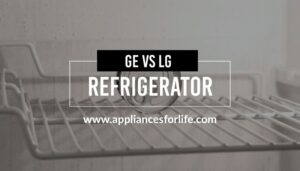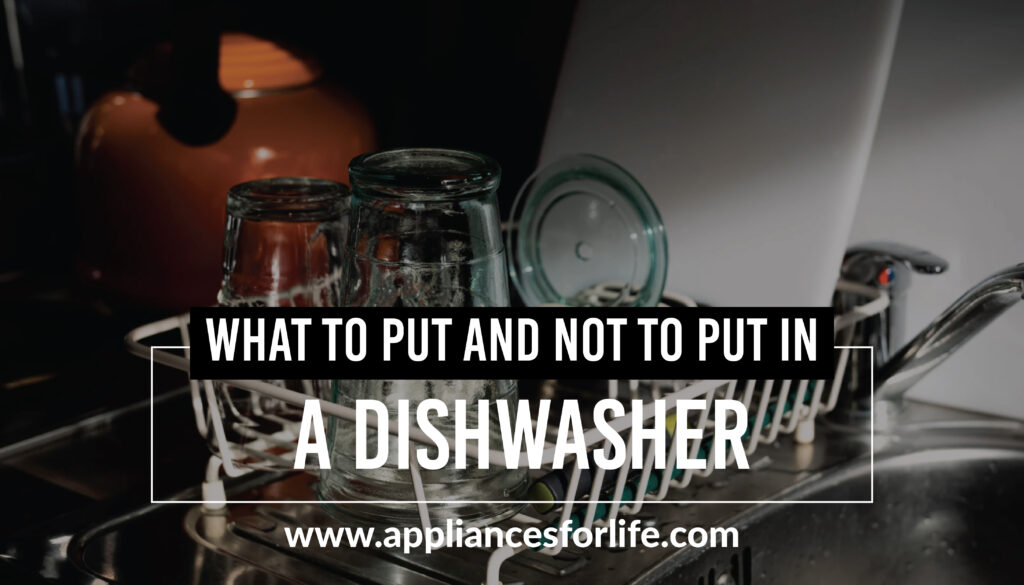- Automatic dishwashing makes dishwashing not only easy but also faster. It does not end here. It provides proper sanitation to the dishes washed. Dishwashers are considered an unnecessary and unnecessary.
- Dishwashers are a reliable escape from the hustle and bustle of the day. Dishwashing should no longer be in the hustle and bustle of the day. Dishwashers function properly if their usage guidelines are followed. Dishwashers should be cleaned regularly and maintained properly. There are some dishes to be washed in the machine. This article provides details.
It is not unlikely that you have not relieved yourself of non-stop handwashing because you do not know how to use one. Permit me to take another guess, is it because you just find handwashing so convenient that you do not see any need for a machine doing it for you. Whether it is the first excuse or the second, knowing how to use your dishwasher can save you a lot of pain and handwashing stress when you eventually decide to visit the stores. Dishwashers are invaluable for cleaning dishes and cookware, but a lack of understanding of proper usage may pose a problem and expose you to inevitable abuse.
Table of Contents
Toggle
Below is the progression in the appropriate use of a dishwasher
- Load the top and bottom racks of the dishwasher
- Load the dishwasher detergent
- Select a wash cycle
- Start the dishwasher
1. Load the top and bottom racks of the dishwasher
There is an order in which dishes are to be loaded into your dishwasher. Failure to follow this order may result in improperly washed dishes. Specific arrangements must be made for both bottom and top racks of the dishwasher, but before we discuss these arrangements, it is important to note that before you ever load your dishwashers at all, make sure to scrape every extra food off the plates or do a light rinse of the dishes before placing them in the dishwasher. After scraping, endeavour to evenly space those dishes in the dishwasher racks, with the dirty side of each plate angled down toward the water jets. The spacing of your dishes is important because overlapping your dishes prevents the water jets in the dishwasher from reaching inside those plates for thorough cleaning.
Top rack
The top rack is for your small and delicate dishes. Bowls, cups, glasses, and small plates are placed on your dishwasher’s top rack. These dishes should also be placed at an angle where water can easily touch them and wash them thoroughly from the inside.
Place plastic containers and lids on the top rack only to avoid warping. Always check the bottom of your plasticware to ensure it’s dishwasher safe.
Bottom rack
The bottom rack is meant for larger kitchenware like dinner plates, serving platters, stainless steel pots, dishwasher-safe baking dishes, and other deeply soiled dishes. Ensure that these heavy dishes are placed in positions that are not blocking the wash arms.
- Ensure that these pots and pans are placed along the sides of the dishwasher or toward the back of the dishwasher.
- Utensils are placed in the dishwasher utensil basket, with sharp ones facing downward to avoid injuries. Remember to put all these kitchenwares in the position where they are conveniently exposed to the dishwasher spraying jets.
Some dishwasher models come with a third rack where extra silverware, utensils, and other hard-to-fit dishes can be kept. This feature is common in some Whirlpool Dishwashers. A good example is the DECKER BCD6W Compact Countertop Dishwasher
2. Load the Dishwasher detergent
While it is the responsibility of your dishwasher to dispense detergent for washing automatically, you need to load your deterge.no. You may refer to your user manual to find where yours may be located.
Look through your user manual or inspect your dishwasher to locate your rinse aid dispenser. If your dishwasher has a rinse aid dispenser, add your rinse aid to the dispenser. If it doesn’t, you can purchase a rinse aid basket or use detergent tablets or packs that include a rinse aid.
After adding the detergent, close the lid firmly till you hear it click. In most Whirlpool dishwashers, an initial pre-wash cycle has to be completed before the actual washing begins. After completing this cycle, the dishwasher lid opens up for the detergent you have added to mix up with water. Leave the dishwasher at this stage to carry out this function, and shut the lid again as soon as the mixing is done.
The cleaning/washing ability of a dishwasher also largely depends on the kind of detergent being used for washing. There is a pool of automatic dishwasher detergents that you can choose from; however, when you take your pick, ensure that your choice has been specifically formulated for dishwashing. There are various detergents, including liquid, powder, gels, tablets, and packs.
3. Select a Wash Cycle
The wash cycle to be selected for your dishwashing depends on the quantity of load to be washed and how soiled those dishes are. Most dishwashers come with at least three cycles- Quick, Normal, and Heavy Duty, to handle almost any kind of soil or load, as long as the latter fits. Depending on the type of your dishwasher, the control panel for most dishwashers is located at the top or front of the dishwasher door, Locate the buttons that bear each cycle and select the appropriate process for your load using the guide below.
Quick
This cycle typically uses more water, energy, and a higher temperature for fast results. Use this cycle when you have lightly soiled dishes you need in a hurry.
Normal
This cycle cleans everyday messes without using extra water. It is the most commonly used cycle because it gets your dishes done very quickly, provided they are not heavily soiled.
Heavy Duty
This cycle is for loads that include heavy kitchenware like pots, pans, and other heavily soiled materials. The Heavy-duty cycle uses extra water and hot temperature water to get this heavily soiled kitchenware clean easily.
The water temperature should be 120ºF as it enters the dishwasher for optimal performance. Water that is too cold may not clean your dishes as well, and if the water is too hot, it may make baked-in food harder to remove from dishes and pots.
4. Start the Dishwasher
Double-check to ensure that your dishes have been correctly placed in the racks in the order prescribed above. Ensure that your words are not obstructing the wash arms and jet sprays in the dishwasher. Shut the outer lid to commence washing, put on the dishwasher, and select the appropriate cycle.
The things you may Wash in your Dishwasher
Your Dishwasher may be very strong but delicate for some materials. Despite being called a dishwasher, a wide range of materials can be washed in it. Home Decors, Bathroom Accessories, and grooming tools are some of the things that can be washed in a dishwasher.
Some things should never go into a dishwasher, like wooden pieces, cast iron, and copper, so it is advisable to be a bit cautious and follow manufacturer care tips on specific items before choosing to experiment with your dishwasher. Note this tip- the top rack is the safest place to wash some things. Especially those items that may easily succumb to hot temperatures. This is so because the top rack is quite far from the heating element at the bottom of the dishwasher. Hence, if you are going to wash your plastics, keep them on the top rack. Here are some of the things your dishwasher should be able to wash
Kitchen Tools
- Exhaust Fan Filters and Covers: Exhaust fan filters and covers are used to shield some devices from dust and dirt. Hence, it is only logical that they are also made to be washable. To wash them in your dishwasher, place the filter and any removable covers, preferably at the top rack of your dishwasher, for thorough degreasing.
- Silicon Oven Mitts and Trivets: Depending on where these items are attached, they are very susceptible to dirt residue and bacteria. To wash them delicately, place them in the top rack of your dishwasher while you select the quick cycle for this wash.
- Kitchen Brushes: Your kitchen brushes and sponges also need thorough cleaning if they are going to render effective services while you use them. Keep these items on the top rack of your dishwasher and select the quick wash cycle.
- Refrigerator Shelves and Bins: You do not need to handwash these items while you wash your clean your refrigerator, all you need to do is place them on the top rack of your dishwasher, and your dishwasher will clean them to your satisfaction.
- Cabinet and Drawer Hardware: If your ceramic and metal handles and knobs are sticky and dirty, remove them from the cabinets and place them in a mesh bag on the top rack of the dishwasher. Skip hand-painted knobs or appliance controls in the dishwasher; the paint may come off.
Bathroom Accessories
- Soap trays and Toothbrush racks: These items are so frequently used that we do not remember to clean them. Due to little or no cleaning, the house has harmful bacteria that stand a chance of jeopardizing our healthy living. Therefore, it is advised that you take these items through your dishwasher regularly, and they will be thoroughly clean from time to time. This process also applies to shower proofs, Sponges, and Brushes
- Rubber Tub Mats: If you use a rubber mat in the tub to prevent slipping, hang it to dry after every use to deter mold and give it a weekly cleaning in the dishwasher.
Home Decor
- Vase: Decorative pottery pieces and vases can be washed in a dishwasher. However, remember to keep these on the top rack of the dishwasher to avoid washing away their delicate embroidery.
- Switch Plates and Outlet Covers: These items are frequently used, and they register many grimy fingerprints in the process. Avoid any painted metal or brass covers, but plastic ones can go right on the top rack. Be sure to safely put aside the screws so you can find them later.
- Desk Accessories: Take a look at your pencil cups, paper organizers, and small trash cans and send them through a regular cycle for a good cleaning.
Things you should not wash in your Dishwasher
- Sharp Knives
Whether or not you can wash your knives in a dishwasher is a debatable topic because some manufacturers say you can while others say it is dangerous. Sharp Knives can damage the inside of your dishwasher, and you may be forced to prematurely make another dishwasher purchase if not properly placed in its racks. Apart from the damage to the machine, washing it in the washer also makes it really blunt or even gives you a cut. Hence, you may consider all these factors before putting them in your dishwasher for washing. However, if a knife will is properly placed in a dishwasher, it may not be bad to wash the same in a dishwasher.
- Non-Stick pots and pans
Unless the manufacturer specifically advises that it is safe to wash your nonstick pots and pans in a dishwasher, do not put cookware with nonstick coating in a dishwasher for washing. After a frequent wash in a dishwasher, the process can break down the layer, causing it to flake off during cooking and ruining the nonstick finish.
- Hand-Painted Ceramics and other delicate items: Painted items generally are discouraged from being washed in a dishwasher. Some fragile items like hand-blown glass, antiques, and fine figurines should stay out of the dishwasher; otherwise, they may lose their color when washed in a dishwasher.
- Pressure Cooker Lids: Never wash pressure cooker lids (including those for stovetop pressure cookers and electric types, like the Instant Pot) in the dishwasher as small food particles or dishwasher detergent can collect or lodge in the regulator or safety valves. Instead, wash pressure cooker tops, gaskets, and pots by hand in warm, soapy water. Rinse and dry well. Do not store with the lid in place, as the gasket may seal permanently, and you may lose the pot.
- Crystal and Cast Iron: Crystals should not be washed in a dishwasher unless you are ready to have them cloudy and pitted because this is what happens after the frequent wash of a crystal in a dishwasher. The wash of cast iron in a dishwasher is highly discouraged.
FAQs
Do I have to use a dishwasher detergent in my dishwasher?
To get the best results, you must use a dishwasher detergent only in your dishwasher. Do not substitute or add any other cleaning products or hand-dishwashing liquid for automatic dishwasher detergent because they are likely to cause suds that will be too much for your dishwasher to clean
How do dishwashers work?
Dishwashers use a pressurized sprinkling/spraying system to get dishes clean. To wash in a dishwasher, first, scrape and rinse the plates to remove any tough soil on the plates. Load the dishes in the dishwasher and supply dishwashing detergent to the appropriate compartment. The dishwasher then begins operation when it warms the water up to a certain degree and adds detergent. The washing is done later, and rinsing comes shortly after.
How do I clean my dishwasher filter?
Filter cleaning is crucial to avoid clogging the dishwasher drain and its efficient performance. These built-in filters are usually located near the bottom basket/rack, where they trap large food particles and prevent clogging. Refer to your dishwasher manual, take out the filter, wash it using warm water and soap, and then fit it back in place.
25 MINUTES
ESTIMATED TIME DESIGNING AND UPLOADING THIS ARTICLE
10 HOURS 26 MINUTES
ESTIMATED TIME RESEARCHING AND WRITING THIS ARTICLE
You Might Also Like

How To Mount A TV On A Tile Wall
Whether you’re moving into a new home or you just feel the need to have a TV installed in your kitchen with a tiled wall – the process is not always very easy. You just have to get it right. We’ve seen people ask questions

How to Install Ice Maker on LG Refrigerator?
LG is one of the best manufacturers of electronics and home appliances in the world, and for a while now, the brand has justified its position at the summit of the industry. The South Korean company has been a consistent figure in the industry for

All You Need To Know About Mirro Pressure Cookers
Before reviewing Mirro pressure cookers and find out what it is best for we must know what others are offering and why we picked Mirro cooker? If you are wondering as to how a pressure cooker works and what it actually is then here is your

How To Clean a GE Stainless Steel Gas Stove Top?
There’s a lot you can do with your GE stove tops as they’re regarded as some of the best on the market right now. Nevertheless, as good as these cookers are, they have to be properly cleaned to keep them functioning at the highest level.

Top 3 Best Blenders for Margaritas
If you’re on the market for the best blenders for margaritas, our review covers the best blenders for making margaritas, including Ninja blenders for margaritas, Hamilton beach margarita blender, and Margaritaville blender review, and we’re sure that at the end of the day, you’ll find

Wine Cellar Cooling Unit Reviews: The Best of The Best
What are wine cellar cooling units? This question also answers why most wine cellars need cooling units. A wine cellar cooling unit is an appliance that regulates temperature and humidity levels within a wine cellar for the sole purpose of providing perfect conditions for wine

Miele vs. Bosch Washing Machines
Finding the suitable brand to trust when purchasing a new washer is one of the hardest things you’ll have to go through if you don’t already have a brand you’re loyal to. This article will explore the best Miele vs. Bosch washing machines to help

Top 5 Best Food Processor Brands
Going on the market to purchase a good food processor can be a long process if you don’t already have a brand you can trust. In this article, we’ll be exploring the top 5 best food processor brands in the business today. Experts have said

The Best Water Heater for Coffee
If you’re a coffee lover, you must always think about how to get your next cup of coffee as fresh as possible. This article discusses the best water heaters for coffee, how instant water heaters for coffee work, and their benefits. Coffee is one of

GE vs LG Refrigerator: Ultimate Comparison to Choose Wisely
In the appliance industry, some brands do it better than others, and that’s why the market remains one of the most competitive markets in the world. GE and LG are two of the biggest players in the appliance market. The talk of which brand does

